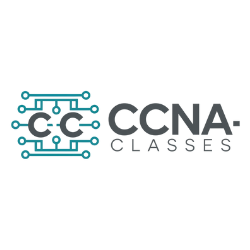Are you preparing for the CCNA exam and feeling overwhelmed by the amount of material to cover? Building a study group can be a game-changer in your journey to becoming a certified network professional. In this article, I’ll guide you through the steps to create an effective study group that will enhance your learning experience and boost your chances of success.
When it comes to studying for the CCNA, the saying “two heads are better than one” couldn’t be more true. By joining forces with like-minded individuals, you’ll have the opportunity to exchange knowledge, clarify concepts, and motivate each other to stay on track. Whether you’re a beginner or already have some networking knowledge, a study group can provide valuable insights and support that will accelerate your learning process.
Ready to take your CCNA preparation to the next level? Let’s dive into the practical steps you can take to build a study group that will maximize your chances of passing the exam and gaining a solid understanding of networking principles.
Step 1: Define Your Goals and Objectives
When building a study group for the CCNA exam, it’s important to start off on the right foot by defining your goals and objectives. Having a clear understanding of what you want to achieve will help you stay focused and motivated throughout the study process. Here’s how to get started:
- Identify your specific goals: Think about why you want to obtain the CCNA certification. Is it to advance your career, gain new skills, or increase your earning potential? By clarifying your goals, you can tailor your study group activities to align with your aspirations.
- Set realistic timelines: Determine when you want to take the exam and work backward from there to establish study milestones. Setting realistic timelines will help you stay organized and make progress towards your goals.
- Outline your objectives: Break down your goals into smaller, manageable objectives. For example, if one of your goals is to understand networking protocols, your objective could be to master the TCP/IP suite. This will help you stay focused on specific areas of study and track your progress along the way.
- Consider your study preferences: Reflect on your learning style and preferences. Do you prefer studying individually or in a group? Knowing how you best absorb and retain information will help you choose the right study group format and structure.
Step 2: Find Like-Minded Individuals
Finding like-minded individuals to join your study group is an essential step towards building an effective team. When searching for potential group members, look for individuals who share your enthusiasm for networking and have a similar commitment to success in the CCNA exam. Here are a few strategies to help you find the right people:
- Reach out to classmates: Start by connecting with classmates who are also preparing for the CCNA exam. Share your interest in forming a study group and see if they are interested in joining. Collaborating with people you already know can create a comfortable and supportive environment for learning.
- Join online forums and study groups: Utilize online networking forums, such as Cisco’s online community or social media groups related to CCNA certification. Engage in discussions, ask questions, and identify individuals who share your goals. These platforms can connect you with individuals from diverse backgrounds, providing valuable insights and perspectives.
- Seek out local networking events: Attend local networking events, such as tech meetups or seminars, where you can interact with other aspiring networking professionals. These events offer a great opportunity to find like-minded individuals who are dedicated to advancing their skills and knowledge in the field.
When finding potential study group members, it’s important to consider the availability and commitment of each person. Look for individuals who are willing to dedicate sufficient time and effort to the study group. Consistency is key in ensuring the group’s success, so seek out individuals who can commit to regular study sessions.
Remember, building a study group is about finding individuals who not only have a similar goal but also possess complementary skills and knowledge. Diversity within the group can enhance the learning experience by fostering different perspectives and approaches.
Step 3: Set Up a Communication Channel
To ensure effective communication and collaboration within your CCNA study group, it is crucial to set up a dedicated communication channel. This will allow everyone in the group to stay connected, exchange ideas, ask questions, and share resources. Here are some steps to set up a communication channel for your study group:
- Choose a platform: Select a communication platform that works best for your group. There are several options available, such as Slack, Discord, Microsoft Teams, or even a private Facebook group. Consider the features each platform offers, such as group chat, file sharing, and video conferencing capabilities.
- Create a group: Once you have chosen a platform, create a dedicated group for your study sessions. Make sure to invite all the members and set some guidelines for group etiquette. This will help ensure a respectful and productive environment for everyone.
- Establish communication norms: Set expectations for how often and when group members should communicate. It’s important to establish a regular communication schedule to avoid confusion and ensure everyone stays on track. Additionally, encourage open communication and active participation from all members.
- Share resources: Utilize the communication channel to share study materials, resources, and helpful articles related to CCNA. This will allow group members to access and review the material at their convenience and promote collaborative learning.
By setting up a dedicated communication channel, you create an environment that fosters effective collaboration, knowledge sharing, and support among group members. Regular communication will help you stay motivated, stay accountable, and maximize the benefits of studying in a group.
Remember, effective communication is the key to a successful study group, so make sure to leverage the power of technology to enhance your CCNA preparation journey.
Step 4: Establish Study Group Rules and Expectations
When it comes to building a study group for the CCNA exam, it’s important to establish clear rules and expectations. This will help to maintain focus, accountability, and ensure that everyone is on the same page. Here are some key considerations when establishing study group rules:
- Attendance: Determine how often your study group will meet and establish guidelines for attendance. It’s crucial that all members commit to attending the study sessions regularly to ensure consistent progress.
- Participation: Encourage active participation from all members. This can include asking questions, contributing to discussions, sharing resources, and helping to explain challenging concepts. Active engagement will enhance the learning experience for everyone.
- Preparation: Set expectations for individual preparation before each study session. This can include completing assigned readings or practice exams, reviewing class notes, or working on specific exercises. Being prepared will make the study sessions more productive and efficient.
- Respect: Establish a respectful and inclusive environment within the study group. Encourage members to express their thoughts and opinions freely, while maintaining a respectful tone. Differences in perspectives can lead to valuable discussions and deeper understanding.
- Confidentiality: Emphasize the importance of respecting each other’s privacy and confidentiality. Discussions within the study group may involve sharing personal experiences, challenges, or strategies. Members should feel comfortable knowing that what is shared within the group remains confidential.
- Timeliness: Stress the importance of punctuality. Starting and ending study sessions on time shows respect for everyone’s schedule. Additionally, being punctual ensures that everyone has equal opportunity to contribute and learn.
- Support: Foster a supportive and collaborative atmosphere. Encourage members to help and support each other throughout the study process. This can include offering assistance, providing feedback, and celebrating each other’s successes.
By establishing these study group rules and expectations, you’ll create a structured and cooperative environment that will maximize learning and preparation for the CCNA exam. Remember, adhering to these guidelines will help keep the study group focused, motivated, and ultimately increase the chances of success.
Step 5: Create a Study Schedule
When it comes to preparing for the CCNA exam, having a well-defined study schedule is essential. It helps you stay organized, manage your time effectively, and ensure that you cover all the necessary material. Here are a few steps to help you create a study schedule that works for you:
- Determine your availability: Start by assessing your current commitments, such as work, family, or other obligations. Be realistic about the amount of time you can dedicate to studying each week. Remember, consistency is key, so aim for regular study sessions rather than cramming everything into a single day.
- Set study goals: Break down your study goals into smaller, manageable tasks. Identify the topics or chapters you need to cover and assign specific time slots for each. This will help you stay focused and ensure that you cover all the necessary material before the exam.
- Prioritize difficult topics: Identify the areas in which you struggle the most and allocate more time to them in your schedule. By devoting extra time and effort to challenging topics, you can strengthen your understanding and improve your overall performance in the exam.
- Create a study routine: Find a study routine that works best for you. Some people prefer studying in the mornings, while others are more productive in the evenings. Experiment with different study times and identify when you feel most alert and focused.
- Utilize study techniques: Incorporate effective study techniques into your schedule, such as practice questions, flashcards, and hands-on lab exercises. These techniques can help reinforce your understanding of the material and improve your retention of key concepts.
Remember, a study schedule is meant to guide and structure your learning process, but it should also be flexible. If you find that certain topics require more time than initially allocated, don’t hesitate to adjust your schedule accordingly. The goal is to strike a balance between thoroughness and efficiency in your preparation.
Step 6: Determine Study Materials and Resources
When it comes to building a study group for the CCNA exam, determining the right study materials and resources is crucial for success. Here are some key points to consider:
- Official Cisco resources: Start by familiarizing yourself with the official study materials provided by Cisco. Cisco Press offers a range of books, eBooks, and practice tests specifically designed for the CCNA exam. These resources are developed by experts in the field and can provide you with comprehensive coverage of the exam topics.
- Online courses and video tutorials: Another valuable resource for building your knowledge and understanding is online courses and video tutorials. Platforms like Udemy and Pluralsight offer a wide range of CCNA courses that provide structured learning, hands-on labs, and detailed explanations of key concepts. YouTube is also a great source for free video tutorials on CCNA topics.
- Practice exams and quizzes: To gauge your progress and identify areas for improvement, it’s essential to incorporate practice exams and quizzes into your study routine. Boson and MeasureUp are excellent sources for CCNA practice exams that simulate the actual exam environment. Additionally, websites like Quizlet offer flashcards and quizzes created by other CCNA students, allowing you to test your knowledge and learn from different perspectives.
- Networking equipment: Hands-on experience is vital for success in the CCNA exam. If possible, consider getting your hands on networking equipment such as routers and switches to practice configuring and troubleshooting. Alternatively, you can use network simulation software like Cisco Packet Tracer or GNS3 to practice in a virtual environment.
- Study groups’ shared resources: Within your study group, encourage members to share any additional study materials they have found helpful. This could include notes, cheat sheets, study guides, or even online resources they have come across. Sharing resources can broaden your understanding of the material and provide different perspectives on challenging topics.
By determining the right study materials and resources for your CCNA exam preparation, you can ensure that you have access to comprehensive and diverse learning materials. Remember to make the most of official Cisco resources, online courses, practice exams, networking equipment, and the collective knowledge of your study group.
Step 7: Assign Roles and Responsibilities
When building a study group for the CCNA exam, it’s important to assign roles and responsibilities to each member. This helps to distribute the workload evenly and ensures that everyone contributes to the group’s success. Here are some key steps to follow in this process:
- Identify individual strengths: Begin by assessing the skills and expertise of each member. Consider their experience with networking concepts, technical knowledge, or any previous IT certifications they may have. This will help you identify areas where each person can excel and contribute effectively.
- Delegate tasks: Once you have a clear understanding of each member’s strengths, you can start delegating specific tasks to them. Assigning responsibilities such as researching and creating study guides, organizing practice sessions, or leading discussions on specific topics can help streamline the group study process.
- Rotate leadership roles: It’s also beneficial to rotate leadership roles within the study group. This allows everyone to gain experience in managing and organizing study sessions. The leader for each session can set the agenda, moderate discussions, and ensure that the group stays on track.
- Encourage accountability: To maintain accountability within the study group, establish clear deadlines for completing assigned tasks. Regular check-ins and progress updates can help members stay motivated and ensure that everyone is actively contributing to the group’s progress.
- Promote collaboration: Encourage collaboration and information sharing among group members. This can be done through group discussions, peer teaching, or brainstorming sessions. By working together and sharing knowledge, the group can benefit from diverse perspectives and expand their understanding of complex CCNA concepts.
Assigning roles and responsibilities not only lightens the workload for each member, but it also fosters a sense of ownership and commitment to the group’s success. By distributing tasks based on individual strengths and rotating leadership roles, the study group can function efficiently and effectively. Moreover, promoting collaboration and accountability further enhances the learning experience and increases the chances of success in the CCNA exam. So, make sure to assign roles and responsibilities for a well-structured and productive study group.
Step 8: Organize Study Sessions
Once you have established your study group and assigned roles and responsibilities, it’s time to start organizing study sessions. These sessions are crucial for effective learning and preparation for the CCNA exam. Here are a few tips to help you make the most out of your study sessions:
- Set a Regular Schedule: Consistency is key when it comes to studying. Determine a regular schedule that works for everyone in the group. This will help ensure that everyone can plan their time accordingly and attend the sessions consistently.
- Choose an Ideal Study Environment: Find a comfortable and distraction-free environment for your study sessions. It could be a quiet coffee shop, a library, or even a dedicated study room. The goal is to create an environment where everyone can focus and concentrate on their studies.
- Plan the Agenda: Before each study session, create an agenda that outlines the topics or chapters that will be covered. This will keep everyone on track and ensure that you cover all the necessary material.
- Break the Material into Digestible Chunks: Instead of trying to tackle large amounts of information all at once, break down the material into smaller, manageable chunks. This will make it easier for everyone to understand and retain the information.
- Encourage Active Participation: During the study sessions, encourage active participation from everyone in the group. Encourage questions, discussions, and debates on the topics being covered. This will help deepen everyone’s understanding of the material.
- Utilize Different Study Methods: People have different learning styles, so be open to using different study methods. This could include watching tutorial videos, practicing on networking equipment, or creating flashcards. Experiment with different techniques to find out which ones work best for each person.
- Review and Recap: At the end of each study session, take some time to review and recap the key points covered. This will reinforce the learning and ensure that everyone has a clear understanding of the material.
Remember, the goal of study sessions is to facilitate the learning process and help everyone in the group succeed. By organizing these sessions effectively, you can maximize productivity, understanding, and retention of the CCNA exam material.
Step 9: Utilize Peer Teaching and Learning
Peer teaching and learning is a powerful technique that can greatly enhance your understanding and retention of the CCNA exam material. When you teach others, you reinforce your own knowledge and identify areas where you might need more practice or clarification. Additionally, learning from your peers exposes you to different perspectives and approaches, helping you develop a well-rounded understanding of the concepts.
Here are a few strategies to effectively utilize peer teaching and learning within your study group:
- Rotate the role of the teacher: Each member of the study group should take turns being the teacher for a particular topic or concept. This not only allows each member to enhance their understanding but also helps distribute the workload evenly among the group.
- Prepare teaching materials: When it’s your turn to teach, prepare materials such as presentations, diagrams, or concept maps to help explain the topic to others. By organizing your thoughts and presenting the information in a clear and concise manner, you’ll deepen your understanding and make it easier for your peers to grasp the concepts.
- Encourage questions and discussions: During teaching sessions, encourage your peers to ask questions and engage in discussions. This not only promotes active learning but also helps clarify any misunderstandings or confusion. As a group, you can work together to find solutions and deepen your understanding of the subject matter.
- Provide constructive feedback: After each teaching session, provide feedback to the person who presented. Offer constructive criticism and suggestions for improvement. This will help them refine their teaching skills and identify areas where they can further enhance their understanding.
By actively participating in peer teaching and learning, you’ll not only strengthen your own knowledge but also contribute to the growth and learning of others in your study group. This collaborative approach will foster a supportive and dynamic environment where everyone benefits from the collective wisdom and experiences of the group.
Remember, the goal is to create a space where each member has the opportunity to teach and learn from one another, building a strong foundation of knowledge that will ultimately prepare you for success in the CCNA exam.
Step 10: Track Progress and Evaluate Performance
Now that you have built your study group for CCNA, it is important to track your progress and evaluate your performance. This step will help you identify areas of improvement, measure your success, and make necessary adjustments to your study approach. Here are a few tips on how to effectively track progress and evaluate performance within your study group:
- Set clear milestones: Establish specific milestones and goals that you want to achieve throughout your study journey. This could include completing certain chapters, achieving a certain score on practice exams, or mastering specific networking concepts. By breaking your study plan into smaller, manageable tasks, you can easily track your progress and stay motivated.
- Use progress tracking tools: Utilize technology and online tools to track your progress. There are various apps and websites available that can help you keep track of study hours, monitor your performance on quizzes and exams, and even provide visual representations of your progress. These tools can help you stay organized and provide a clear overview of your study achievements.
- Regularly assess your understanding: Take time to evaluate your understanding of the material. This can be done through self-assessment quizzes, practice exams, or even peer evaluations within your study group. Assessing your understanding will give you a sense of where you stand and help you identify areas that require further attention.
- Seek feedback from your study group: Utilize the collective knowledge and expertise of your study group members by seeking their feedback. Regularly discussing topics, sharing insights, and seeking clarification can help you gauge your performance and identify any gaps in your knowledge. Encourage open and constructive discussions within your study group to maximize learning opportunities.
- Track your study habits: Reflect on your study habits and techniques to evaluate their effectiveness. Are you spending enough time studying? Are you utilizing the right study materials? By keeping track of your study habits, you can identify areas for improvement and make necessary adjustments to optimize your study sessions.
By implementing these tips and actively tracking your progress and evaluating your performance, you can ensure that you stay on track towards achieving your CCNA certification. Remember, continuous assessment and improvement are key to a successful study group experience.
Conclusion
Building a study group for CCNA exam preparation can greatly enhance your learning experience and increase your chances of success. By following the practical steps outlined in this article, you can create an effective study group that will provide motivation, clarify concepts, and improve your understanding of networking principles.
Defining your goals and objectives is the first step in building a study group. Finding like-minded individuals who are committed to regular study sessions is crucial. Setting up a dedicated communication channel and establishing study group rules and expectations will help keep everyone accountable and motivated. Creating a study schedule, determining study materials and resources, and assigning roles and responsibilities within the group will ensure that the workload is evenly distributed.
Organizing study sessions, utilizing peer teaching and learning, and tracking progress and evaluating performance are essential for a successful study group experience. By continuously assessing and improving your study habits, you can stay on track towards achieving your CCNA certification.
Remember, studying with others can provide valuable support and insights. So, gather your study buddies and embark on this journey together. Good luck!





